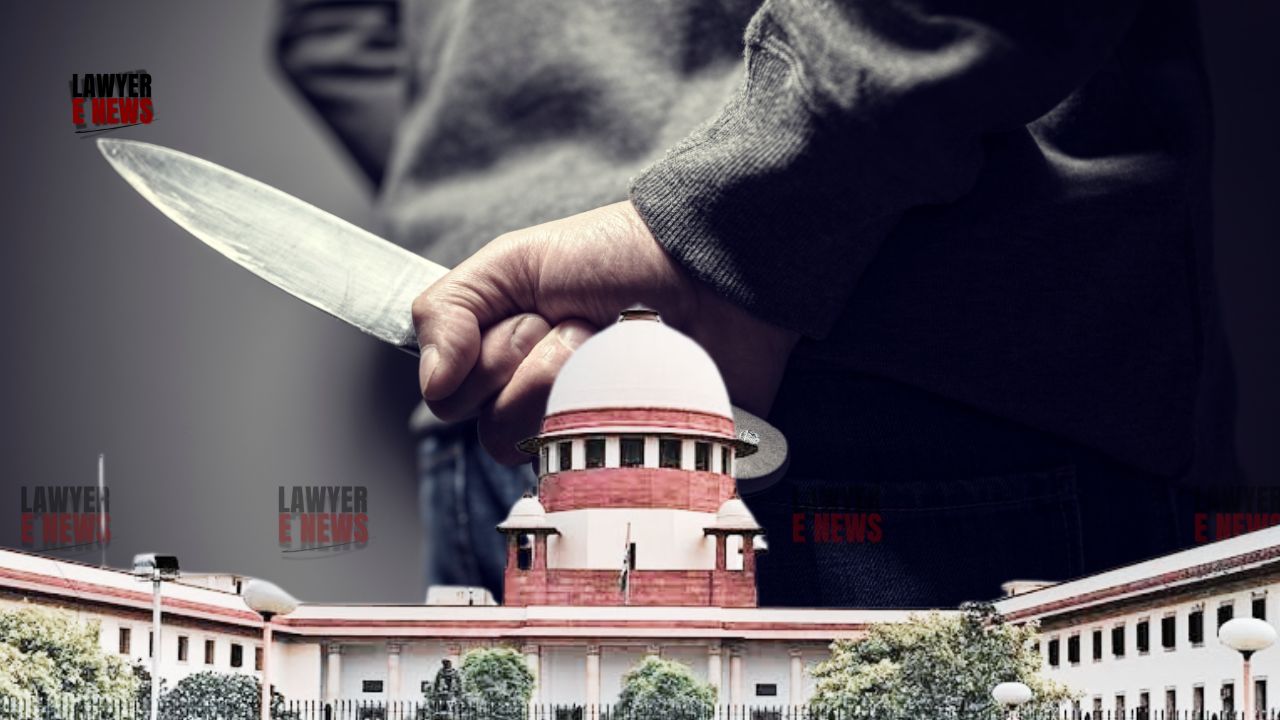-
by sayum
14 February 2026 2:22 PM



The Supreme Court has upheld the conviction of Suresh Dattu Bhojane, Satish Rama Bhojane, and Anna Maruti Bhojane in a high-profile murder case. The judgment, delivered by a bench comprising Justices Abhay S. Oka and Pankaj Mithal, emphasizes the principle of collective responsibility in unlawful assembly under Section 149 of the IPC, reinforcing the convictions handed down by both the trial court and the High Court.
The case revolves around the fatal assault on Mohan Mungase on February 6, 1999, at the residence of Mama Bhojane in Village Borale. The motive stemmed from a dispute over the management of a country liquor shop, previously handled by the accused Dhondappa (A-1) and subsequently entrusted to the deceased and his brother, Nandkumar Mungase (PW-5). On the day of the incident, the accused, armed with deadly weapons, attacked Mohan Mungase, resulting in his death and injuries to Nandkumar and Maruti Nakate (PW-7).
The prosecution's case relied heavily on the testimonies of key eyewitnesses, including Nandkumar Mungase (PW-5), Savita (PW-4), and police constable Mahadeo (PW-9). The Supreme Court noted that their statements were consistent and credible, detailing the sequence of events and the active roles of the accused.
Justice Mithal emphasized the legal principle that even if specific roles were not assigned to some accused, their presence and involvement in the unlawful assembly with a common object to commit murder sufficed for conviction under Section 149 IPC. "The assembly of all the accused persons in the house of Mama Bhojane with deadly weapons was clearly for the purpose of teaching a lesson to the deceased," the judgment noted.
The court discussed the applicability of Section 149 IPC, which holds every member of an unlawful assembly criminally liable for acts committed in pursuance of the common object. Despite A-5 and A-6 not being individually armed, their presence and actions during the crime underscored their collective intent.
Justice Mithal remarked, "Their presence with the other co-accused amounted to an unlawful assembly which is sufficient for conviction, even if they may have not actively participated in the commission of the crime."
The Supreme Court's dismissal of the appeals underscores the judiciary's commitment to upholding the rule of law in cases involving unlawful assembly and collective criminal responsibility. By affirming the lower courts' findings, this judgment reinforces the legal framework for prosecuting crimes involving multiple offenders acting with a common intent. The decision is expected to have a significant impact on future cases involving group assaults and collective violence.
Date of Decision: July 8, 2024
Suresh Dattu Bhojane & Anr. vs. State of Maharashtra
